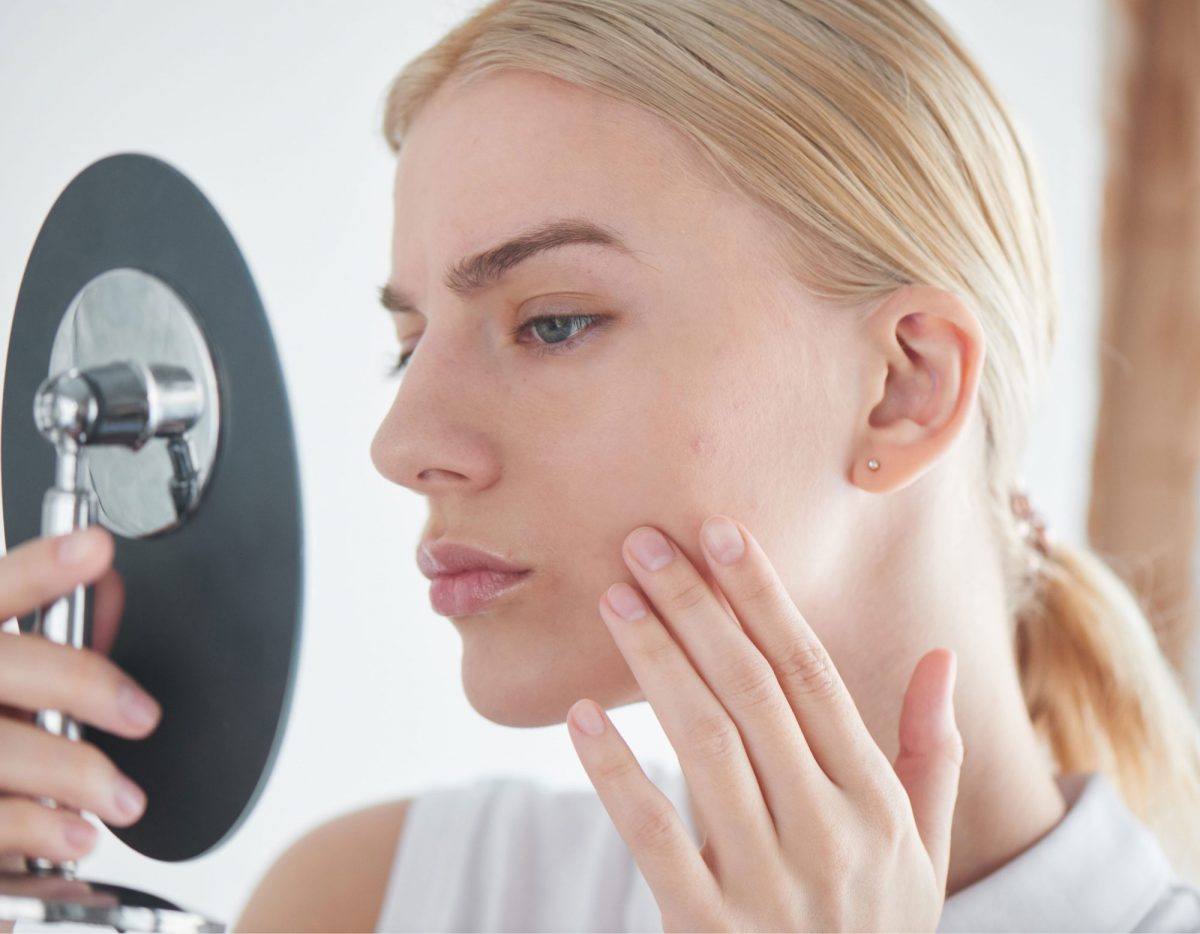Myths and Realities of Acne

Bumps, spots, pimples, blackheads, pustules – these skin irritations can not only ruin the life of a teenager, they can cause great frustration, grief, anguish and anger for people of all ages. Consider the following myths about acne:
Myth: Only teenagers get acne.
Fact: Approximately 25% of adult men and 50% of adult are diagnosed with some form of acne. Causes can range from hormones (which can be related to menopause, pregnancy, menstruation or stress), medication or face and hair products. Adult acne, just like any other, can be managed with a proper skincare routine, including daily sun protection, and help from a dermatologist.
Myth: Acne is caused entirely by your genes.
Fact: While genetics does play a role in how acne develops, there are also lifestyle changes you can make to control your breakouts. Staying hydrated, maintaining a well-balanced diet, getting enough sleep and avoiding surfaces with germs are some of the ways you can avoid acne-causing bacteria, increased oil production within the skin and hormonal imbalances that can cause pimples. Newer research has also linked spikes in blood sugar or over consumption of dairy products to some acne outbreaks, which could indicate that lower carbohydrate diets smaller amounts of dairy consumption are better ways to help control flares.
Myth: Tanning can clear or prevent acne breakouts, while sunscreen clogs pores.
Fact: Just the opposite is true. Excessive tanning of any kind is harmful to the skin, and is also particularly irritating to acne. Exposure to UV rays will dry skin out, which can actually lead to future acne breakouts. On the other hand, many sunscreens (made to reflect UV rays) contain zinc oxide, which fights against the bacteria which causes acne. There are, however, some sunscreens that can irritate acne, so it’s important to talk to your dermatologist in order to find the best products for your skin.. Everyone’s skin is unique, so it may be necessary to try several before finding the right one. Some companies even have products with SPF, makeup AND acne medication.
Myth: Acne Means You Don’t Wash Your Face Enough
Fact: Acne does not happen because your skin is dirty or you don’t wash enough. The culprit behind acne is an oily substance known as sebum. Your skin naturally produces sebum to keep it from getting too dry. Acne develops when too much sebum is produced or its chemical makeup changes. Your genes, changes in hormone levels, and certain medicines are among the factors that can affect sebum production.
Myth: Popping pimples helps get rid of acne faster.
Fact: Popping a pimple before it’s fully formed will risk pushing the bacteria further into your skin and spreading it to other unaffected areas of your face. Along with spreading the infection, popping your pimples may also lead to permanent skin damage and scarring. It’s best to let the pimple heal, which should normally take about a week or two. In darker skin, pimple popping can also worsen discoloration, which without medication can take several months to resolve.
Myths related to acne are abundant and have been around forever it seems. Consider some of the realities related to acne and its treatment:
- Acne is the word used to describe pimples, lumps, and blackheads on the face, neck, chest, back, shoulders, and upper arms.
- Acne is caused by normal hormones that cause the oil glands beneath pores to enlarge. The oil from the glands mixes with skin cells and blocks the pore. Bacteria then grow, causing the site to become red and swollen and then burst.
- Acne is not caused by certain foods, not chocolate, not pizza or chips, despite what you may have heard.
- If you have acne, you don’t have to wait it out. You should see a dermatologist to determine the best treatment. Treatments include creams from the drug store, as well as creams, antibiotic lotions, and oral antibiotics your doctor prescribes. Remember that any treatment only prevents future acne, so the earlier you can see a dermatologist, the better.
- Isotretinoin is the only medication that safely and effectively controls severe, cystic acne–the most serious form of this skin disease.
- Last but not least, acne can leave scars. The best way to avoid scarring is to treat acne early. However, if in the future you find you have some scarring, there are a variety of new treatments available from your dermatologist, including lasers.







